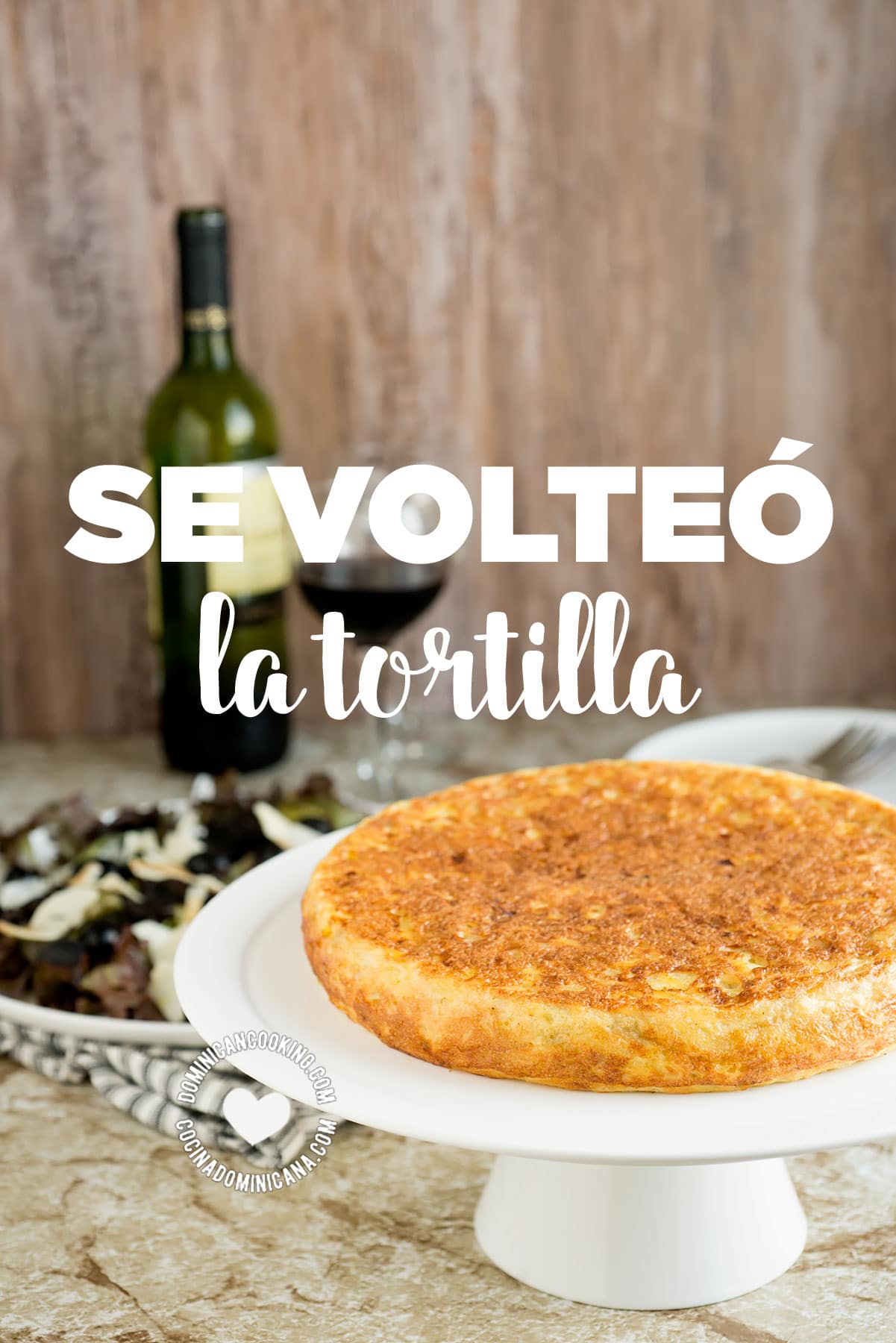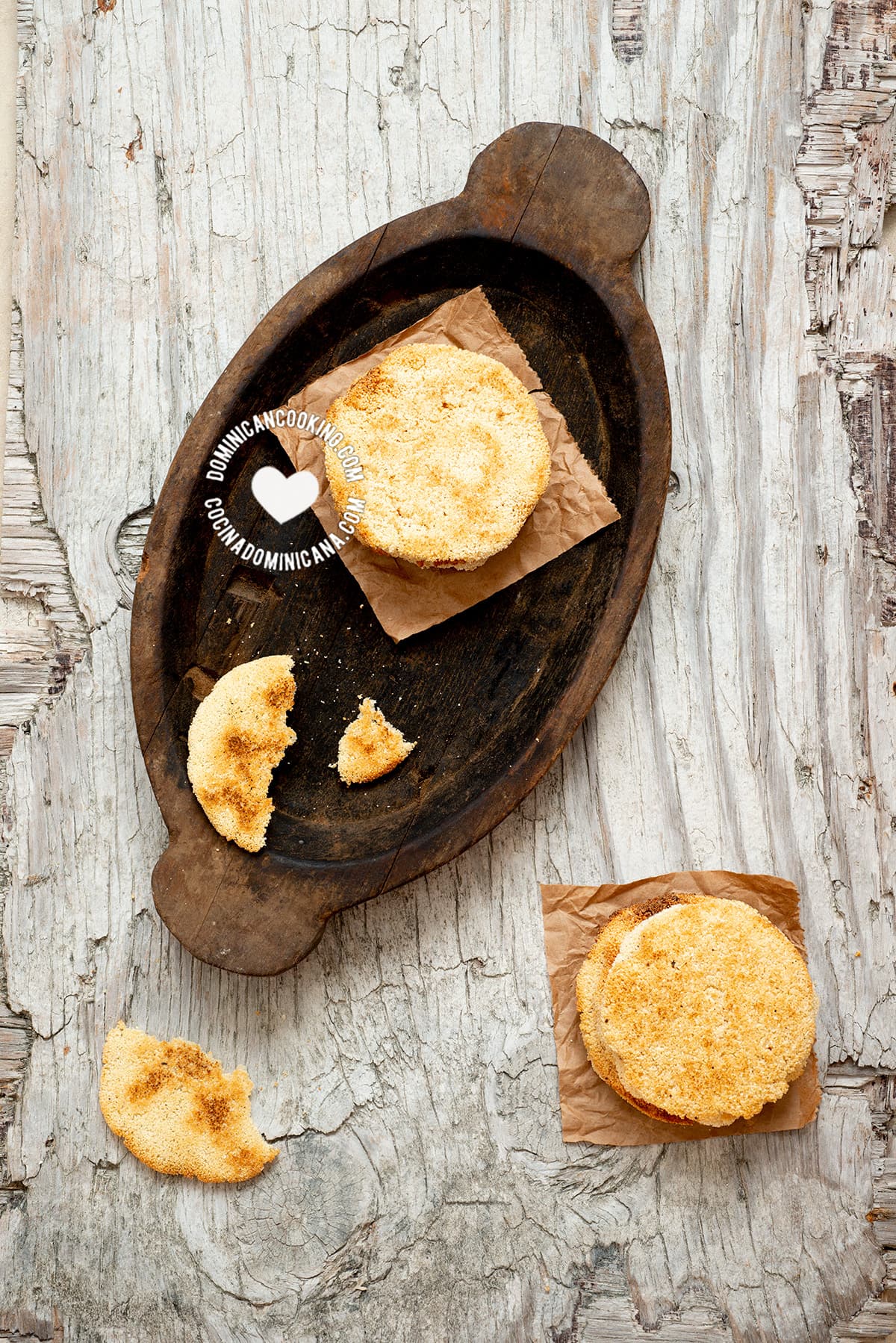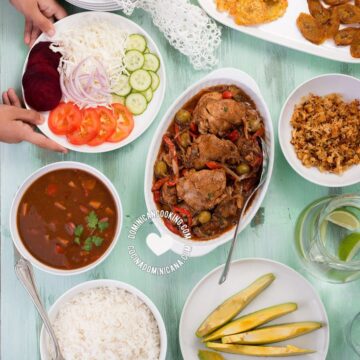Spanish seems to have a richness of food-related expressions. One for every occasion. Many of these expressions require a bit of explanation to understand them (we provide it); there are some funny ones, some are a bit dated, and some are bits of folk wisdom thrown in.
By - Reviewed: . Original: Jul 10, 2016

Spanish food expressions
Originally, we published a list of 15 Spanish expressions related to food, and we received many more suggestions from our readers. Thanks to you, we have expanded it to 37 expressions and sayings, which include many funny Dominican sayings (which we grouped at the end).
We've helpfully sprinkled links to Dominican recipes throughout.
Latin American and Spanish food sayings
Most of these expressions, sayings, and proverbs are common in the Dominican Republic, as well as in the rest of the Spanish-speaking world. Others are known to many Spanish speakers, and some others have equivalents in other languages (such as English). Some of these are uniquely Dominican.
- Darle la vuelta a la tortilla
Literally "to flip the omelette/tortilla," but figuratively it means to change the subject, change opinion or turn the tables. A similar saying, "se volteó la tortilla" - the omelette flipped - is the English equivalent to "the tables have turned." - A falta de pan, casabe/ buenas tortas/tortillas/galletas/arepas.
If you don't have bread, make do with casabe/cakes/tortillas/cookies/arepas. This one varies according to region. It means make do with what you have, possibly an allusion to Marie Antoinette's « Qu'ils mangent de la brioche. » - "Let them eat cake." - Al pan, pan y al vino, vino
Call bread bread, and wine wine. To tell it like it is, or to call a spade a spade - Se cree que es la ultima Coca Cola en el desierto
S/he thinks s/he is the last Coca Cola in the desert. Someone who thinks they are God's gift to humanity. - Pan con pan, comida de tontos
Bread with bread, food for fools - meaning that it is silly to eat two similar types of food together, like pasta with potatoes, pizza with bread. It can also be used figuratively. Let's completely ignore that an inexpensive Dominican meal can be comprised of Dominican spaghetti and bread or white rice. - Pan comido
Literally, "eaten bread". "A piece of cake" or "as easy as pie" in English. - Lentejas, comida de viejas, si quieres las comes o si no las dejas
Lentils, old women's food: if you want you can eat them; if not, just leave them. A rhyme that means "take it or leave it." - Tener mala leche
Literally: to have bad milk. A nasty or unpleasant person, or someone who is in a foul mood (mostly in Spain) while in some Latin American countries it means to have bad luck. - Me importa un comino/pepino
The literal translation is meaningless: I don't care a cumin/cucumber. I don't give a damn/I couldn't care less. - Como sardinas en lata
Like sardines in a can - the same as in English - to describe crowded or cramped conditions. - Mi media naranja
My half orange - similar to "my other half" - my partner, spouse or soul mate. - El año de la pera
Literally "the year of the pear" meaning ancient. "Esa canción es del año de la pera." - Si la vida te da limones, haz limonada
This is a well-known American English saying attributed to Dale Carnegie that has been adopted by Spanish speakers - Con las manos en la masa
Literally "with their hands in the dough," the exact equivalent of being caught "red-handed" in English. - ¡Vete a freír espárragos!
Go fry asparagus! - A polite way of asking someone to… go forth and multiply. The Dominican equivalent is "¡vete a freír tusas! - En todas partes cuecen habas.
They cook beans everywhere - people have the same problems everywhere. - Un bombón, un guayabo, un pollo, un filete, un queso
Candy, guava, chicken, and cheese, all used in different countries to describe a very attractive person. "Un pollo" is the Dominican expression for a handsome man. - Como un fideo
Like a noodle - to describe someone who is very thin. - Una papa caliente
A hot potato, as in English - a dangerous subject, too hot to handle. - Chorizo
Used especially in Spain to describe corrupt politicians. - El hambre es el mejor sazón
Hunger is the best sauce. - A buen hambre, no hay pan duro
When you're really hungry, there's no such thing as hard bread. - Pisando huevos
Walking on eggs - the same meaning as in the English "walking on eggshells" - treading carefully to avoid causing upset.

Dominican food sayings
- El que come tayota, bebe cerveza y besa una vieja, ni ha comido ni ha bebido ni ha besado.
He who eats chayote, drinks beer, and kisses an old woman, has neither eaten, drank nor kissed - A disparaging reference to the bland taste of chayote (tayota), the mildness of beer compared to hard liquor, and the fading charms of women in their later years. - Estar como el primer guandul
To be like the first pigeon pea, meaning that someone is in good shape for their age. A close but not exact equivalent in English would be "to be full of beans." - Jamona
Literally "ham" but it means an unmarried woman, an old maid, a spinster. In some countries, it also refers to a fat or curvaceous woman, an attractive woman, or a prostitute. - Un ñame
A yam - a dimwit. - Cojer los mangos bajitos
To pick the low-hanging mangos - exactly like the English "to pick low-hanging fruit" meaning to take the easiest option, or to go against the powerless. - Una galleta
Literally a cookie or cracker, but it actually means a slap across the face. Galleta is the expression you'll hear in the DR, but "una torta" - a cake - is used in many other countries. - Guayando la yuca
Grating cassava - working very hard. - Amarrando la chiva.
Tying up the goat, which means working very slowly. It's the opposite of the saying above. - Como un guanimo
Like a guanimo - Dominican-style tamal - used to describe a curvaceous woman wearing very tight-fitting clothes. - Cuando el hambre da calor, la batata es un refresco
When hunger makes you hot, batata - boniato - is a cold drink. It means that if you're hungry, anything will be satisfying. - Estar aplatanado/a
To become plantain-like. In the Dominican Republic, this is famously used to describe a foreigner who has assimilated or "gone native" by adopting Dominican customs and practices and speaking Spanish like a local, but in other parts of the Spanish-speaking world, where plátano means banana, it means to be dazed and confused. - Chivito jarto'e jobo
"Little goat full of hog plums" is used to describe a mediocre person, or someone "hitting above their weight." - Es tarde para ablandar habichuelas
"It's too late to boil beans" means that it's already too late to do something. Beans take a long time to boil, so cooks boil their beans for lunch early in the morning. - Desenredar esa tripa
Tripa is tripe - animal instestines - the base for Dominican Mondongo stew, and the laborious "untangling the tripes" is means to clarify a cumbersome subject or question. - Buscar el moro
"Looking for the rice and beans." Working hard to get the basics of life, similar to "guayar la yuca". In Spain it is "buscarse las habichuelas / alubias / alubias / garbanzos / garrofón."
Do you have any other expressions we missed? We'd love to hear about it; share it in the comments!







